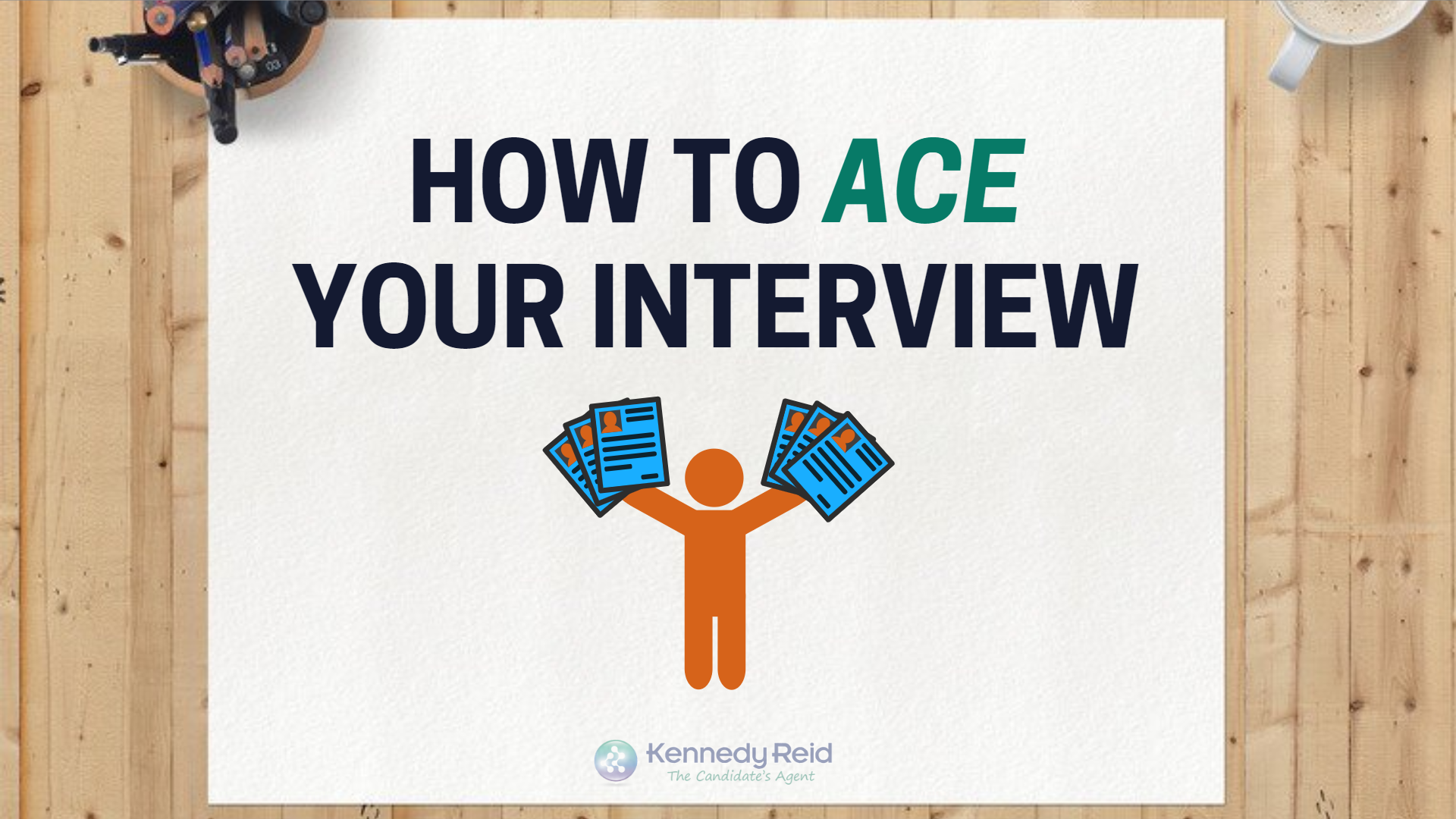Kennedy Reid’s philosophy is to be "THE Candidate’s Agent” and if you go through our process, you will have the advantage of going through what’s called a “Pre-Interview Brief”.
The pre-interview brief could make or break your interview with the client as it will allow you to prepare well for the interview and maximise your chances of progressing to the offer stage in a competitive, employment market.
These 3 steps will help you ace your client interview, bag yourself an offer and ultimately; get you a new job!
1. Research
It is important that you do your own research on the company, as the interviewer will expect that you have done thorough research on what they do and some background on the company. This is important as it not only shows your interest in the company but also your commitment towards the role.
What do we recommend?
Know 3 key points about the company – This will provide you with a broad knowledge of the company and shows the interviewer that you have done your research. Do a quick google search of the company, as well as a thorough browse of the company website.
Be aware of who you will be interviewing with – Know their role within the company and have a look at their LinkedIn profile. You could ask the interviewer about their role when they ask if you have any questions.
Read the job description – Become familiar with what you need to do complete your role. This will show the client you know exactly what you are interviewing for and if there is missing information, you can ask the client when appropriate.
2. Strengths and Weaknesses
“I don’t want you to think I’m up myself”
“I guess I’m good at organising the day”
“My weakness is that I’m a workaholic”
“I can’t really think of anything at the moment”
The above statements are the usual responses I received when asking my candidates on their weaknesses. These can be considered as weak statements as it doesn’t show your own self-awareness and your ability to perform well within a role. Focus on your strengths, and how you transformed your weakness into a strength.
Instead, mention the following:
The skills that will allow you to do the job
“My time-management skills allow me to prioritise well and organise my day accordingly so that I complete the work efficiently”
Any positive feedback you have received from your supervisors or managers
“My manager always says that I am reliable as I come in on time and she can expect me to complete a job accurately”
Keep your weaknesses irrelevant to the role
If you are not comfortable with public speaking but you are applying for a data entry role, it is most likely that you won’t have to complete public speaking tasks
Acknowledge a weakness that you had, what steps you took to improve it and how it has improved ever since
This proves to the client that you are conscientious on where you need to improve, that you proactively work towards improving and consequently, achieving your target
3. Behavioural Questions
Another tricky part of an interview is behavioural questions, where the interviewer could ask you to give an example of when you had to deal with a “difficult situation” or “how you have improved efficiency in your workplace”.
We recommend following a strict guideline of SAO to best answer these questions:
Situation: paint a description of a specific scenario and what was happening
Action: clearly point out the steps of action you took to resolve or manage the situation
Outcome: mention the positive outcome that occurred due to the action steps you took
Behavioural questions are a way for the interviewer to understand how you would act in a similar situation within the role and team, so it is important to provide a clear and concise answer that will emphasise why you would be the best person for the role.
With anything, preparation is key! Take your time and follow the above steps to help you maximise in going through to the offer stage with the client. Watch our videos on how to answer different types of behavioural questions including customer service, attention to detail and meeting your responsibilities.
If you have any further questions, please don’t hesitate to contact me and I would be more than happy to help you out with your “pre-interview brief”.

